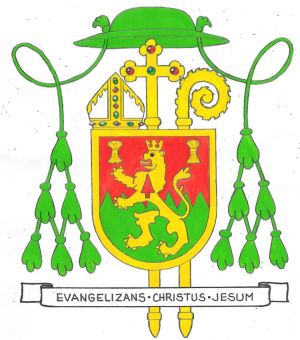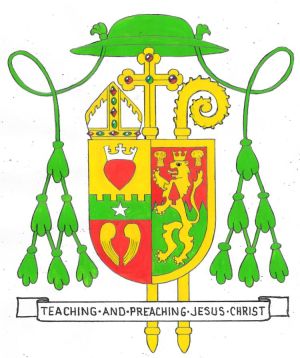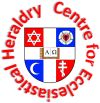Stephen Aloysius Leven
STEPHEN ALOYSIUS LEVEN
Born : April 30, 1905
Deceased : June 28, 1983
Auxiliary Bishop of San Antonio, 1955-1969
Bishop of San Angelo, 1969-1979
| Auxiliary Bishop of San Antonio |
Bishop of San Angelo |
Official blazon
Origin/meaning
As common in US episcopal heraldry, the arms show the arms of the diocese impaled with the personal arms of the bishop.
The seven indentations in the coat of arms of Bishop Leven recall the Siebengebirge (seven hills) of the Rhine where the Bishop's father was born. The lion rampant is from the Leven family coat of arms. The crown recalls St. Stephen, the first martyr, the first baptismal patron of Bishop Leven.
The arrowhead on the breast of the lion refers to the Cherokee Outlet where the Bishop was born. The two bundles of wheat tell that Bishop Leven was born on a farm in Oklahoma which has a similar decoration on its State Seal.
The motto "Teaching and preaching Jesus Christ" is derived from the Act of the Apostles (5: 42) expressing briefly the ideals, the program of life, and the spirit of the Bishop.
The achievement is completed with the heraldic insignia of a prelate of the rank of bishop by instruction of the Holy See, of March 1969, confirmed in March 2001.
Religious or Ecclesiastical heraldry portal
This page is part of the Ecclesiastical heraldry portal |
Heraldry of the World |
|
Catholic heraldry
|
Other Christian churches Other religions
|
Contact and Support
Partners:
Your logo here ?
Contact us
© since 1995, Heraldry of the World, Ralf Hartemink 
Index of the site
Information from Hans van Heijningen













